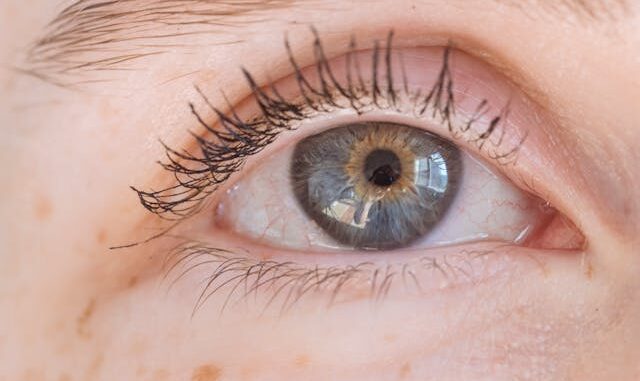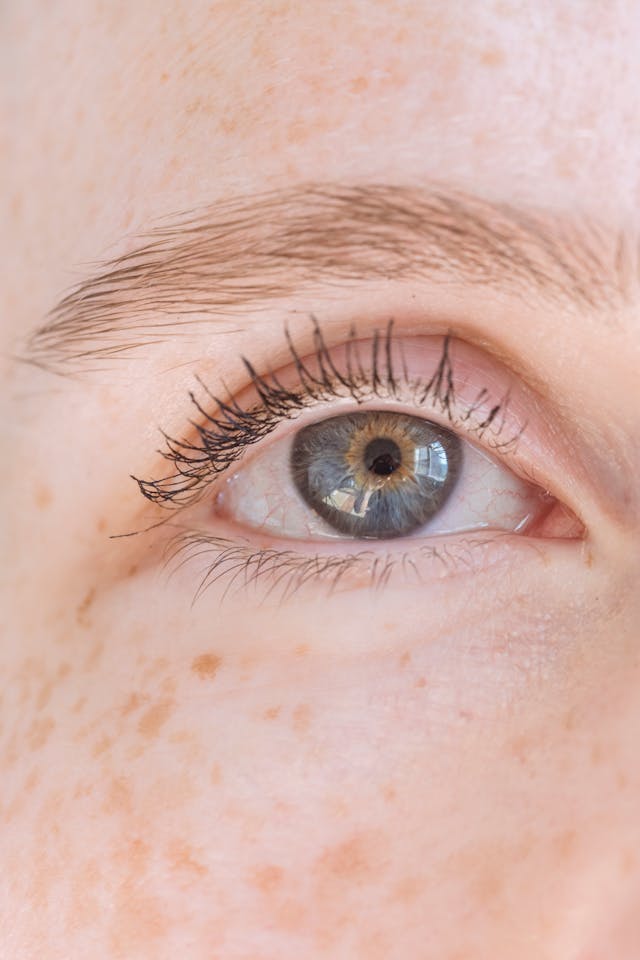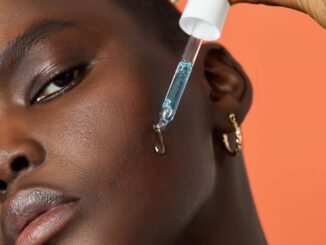
Table of Contents
Are you dealing with dry skin under eyes? I’m sure it’s an unpleasant condition to deal with, and as someone who has dealt with dry skin under eyes, this article will provide useful details on the causes, prevention, and treatments of dry skin under the eyes.
SKIN TYPES (DRY SKIN)
Dry skin is a skin type with low sebum production compared to normal, oily, and combination skin types. Dry skin cannot retain moisture that protects your skin from looking flaky and protects against certain influences that might harm your skin. If you have visible lines on your skin, a rough complexion, peeling, and an elastic feel to your skin, then you have dry skin.
Dry skin is a common condition that can be influenced by a lack of hydration and a dry environment so do not panic if you have symptoms of dry skin under the eyes. At some point, you might feel self-conscious and uncomfortable if the dry skin is noticeable and has an unpleasant appearance but do not make the mistake of scratching or peeling the dry skin, as it might cause bleeding.
Mild and severe symptoms of dry skin under eyes
Dry eyes mostly begin with mild symptoms and irritation because of the thin layer of skin. Due to dehydration, common symptoms of a mild dry under eyes condition include; itchy skin, redness, a burning sensation, flaking, and a rough texture.
If the mild symptoms are not quickly treated, they can become severe and make your skin extremely dry. Severe symptoms of dry under eyes include; swelling, constant itchiness, extreme pain, deep cracks around the eyes, and peeling.
The skin around the eyes is quite delicate and thinner compared to other parts of the body. Dry skin begins to develop when the skin lacks moisture and the natural oils that hydrate it have been stripped. If your skin begins to lack moisture, you will end up having dry skin.

Causes of dry skin under eyes
Skin conditions such as eczema, and conjunctivitis are among the many causes of dry skin that contribute to the dry patches around and under the eyes. Age and weather conditions are also among the causes of dry skin. To treat dry skin under the eyes, you can try out simple home remedies or use over-the-counter products, and for more serious cases, it is advised to seek professional help from a healthcare provider.
Lack of some deficiency and dehydration can be a cause of dry skin, which affects the under eyes. If you have dry skin under the eyes, you may have a deficiency in vitamin D, vitamin A, zinc, and iron.
Eczema
Eczema is a common condition affecting more than 223 million people in the world and around 15% of the number are children aged 1–4.
Many people experience eczema on their skin, as it can occur anywhere on the body and some can experience it around their eyes, which is a cause for dry skin under the eyes. Symptoms such as itchiness, flaky skin, and inflamed skin around the eyes might be caused by eczema.
TYPES OF ECZEMA
Atopic dermatitis
The most common type of eczema is atopic dermatitis, which is a chronic and recurrent inflammatory skin condition that affects all genders, ethnicities, ages, and races.
The skin condition tends to develop around the eyes and on the eyelids, causing the skin to become swollen and itchy. Suffering from atopic dermatitis might cause the skin around the eyes to become darker and thicker. The downside to this skin condition is that it may lead to eye conditions such as keratitis, and conjunctivitis.
If you suspect that you might have developed atopic dermatitis around the eyes, you should contact a doctor as soon as possible, especially if you might be having eye problems that have lasted for more than a week.
An effective and consistent skincare routine that includes products like topical medications, such as immunomodulators and applying a moisturiser for dry skin is a suitable treatment for atopic dermatitis
Seborrhoeic dermatitis
Seborrhoeic dermatitis is a type of eczema that tends to affect mainly the eyelid area. This skin condition tends to develop in areas that produce plenty of oil and sebaceous glands, which affects areas such as the nose, scalp and upper back.
According to many doctors, a specialised antifungal cream is recommended and in severe cases, calcineurin or steroid inhibitor creams might be suggested. If you think you might be suffering from a severe case, visit a healthcare provider.
A simple treatment of washing the area with a mild cleanse daily will impact your skin. You also need to manage your stress levels, moisturise daily, and get enough sleep.
Contact dermatitis
Contact dermatitis is often caused by irritants and allergens. It occurs around the eyelids when an irritant comes into contact with the skin. Being mindful of the type of products you use and the ingredients in them is important. Your skin just might be irritated by an ingredient in either the skincare products you use or your makeup.
Coming into contact with an irritant product and unconsciously touching your eyes can cause dryness under the eyes. Reduce the risk of contact dermatitis by avoiding any known allergens or irritants.
Once you stop using the products that you have identified as the cause of contact dermatitis, the problem will often resolve on its own. Due to the thin layer of skin around the eyelids, doctors often recommend treatments with mild creams and in serious cases, steroid or calcineurin inhibitor creams are suggested.
If your condition persists for more than the speculated time result of the prescribed treatment, it is advised to undergo patch testing to determine what allergen or irritant might be the cause of the dry skin under eyes.
Blepharitis
Blepharitis is a condition that causes inflammation of the skin on the eyelid. It is triggered when your skin reacts to the bacteria that live on the skin. Symptoms include; dry, swollen, itchy, and red eyelids, scaly flakes on the eyelashes, and dry eyes that feel gritty.
This condition is common in people who suffer from seborrhoeic dermatitis but it is not contagious or dangerous to the eyes as it can be easily treated by consistent cleaning of the eyelids.
This condition causes dry skin under eyes due to the clogging of the oil ducts in your eyes. If after managing your symptoms for a while, there’s no improvement, you can visit an ophthalmologist or other healthcare personnel who will provide better care for your condition.
Try out these simple tips to help treat the condition: Moisturise the area and gently massage, Pat the eyelid with a warm compress, and avoid wearing contact lenses for a while.
Conjunctivitis
Conjunctivitis, or pinkeye, refers to the inflammation of the conjunctiva. This is the clear outer covering of the eye.
Conjunctivitis, also known as pink eye, is an inflammation condition of the conjunctiva that occurs when the white area of the eyes becomes pink, causing itchiness, eyelash crusts, eye discharge, and swollen eyelids. This condition is usually triggered by bacteria, allergens, or viruses, which can be contagious.
You can treat this condition at home by using artificial tears and a cold compress. For a more serious case, it is strongly advised to visit a healthcare professional who might prescribe antibiotics or antiviral medications.
OCULAR ROSACEA
Ocular rosacea occurs around and in the eyes with symptoms like red or swollen eyelids, crusty eyelashes, conjunctivitis, itching, and bloodshot eyes. This condition can damage your eyes if not treated properly.
Treatments you can try at home include an eye cleanser, eye drops, and warm compresses to help ease the swollen areas. For more serious cases, seek advice from a healthcare provider.
HARSH WEATHER
Extremely harsh weather can cause your skin to dry out and dry under the eyes. Due to the dry air in different weather conditions, the skin can become dehydrated as it loses moisture. Constant exposure to the sun can also dry out your skin and, in some cases, cause dry skin under eyes.
To combat the harsh weather and treat your dry under eyes, use a gentle cleanser and moisturiser, a mild eye cream, and always apply sunscreen with an SPF higher than 30.
All the causes listed are not limited to the reasons why you might have dry eyes. Other causes include ageing, side effects of some medications, smoking cigarettes, and vitamin deficiencies.
Prevention of dry skin under the eyes
Taking steps to prevent your skin from drying out is the best way to avoid other skin issues like inflammation, and skin infection. You can prevent having dry skin by using gentle cleanser products, a good skincare routine, drinking enough water, eating healthy, cutting down on hot showers and baths, staying away from harsh skincare products, and protecting your skin from heat and the sun to keep your skin healthy. To prevent an eczema flare-up, you can try managing your stress levels, avoiding things you are allergic to, and following your doctor’s advice.
Professional Treatment
If you suspect any of these conditions to be the cause of the dryness around your eyes and you experience symptoms like sensitivity to light, blurry vision, and eye pain, please visit or contact your doctor.
The moment you notice anything unusual with your eyes or vision, you have to contact your doctor to prevent any more problems.
How do you treat dry skin around the eyes?
How to treat the dry skin under eyes ultimately depends on what is causing it. If the cause is a severe issue or an underlying condition, a healthcare provider will have to be involved to prescribe topical medications or treatments best suited for your condition.
In the case of dry under eyes due to mild causes, a simple and effective home remedy such as Vaseline, Shea Butter, or a gentle moisturiser can serve as treatment.
Summary
As uncomfortable as having dry skin can be, especially around the thin skin of the eyes, there are treatments to combat it. You can also prevent it by changing lifestyle factors that will minimise dry skin.
Dry skin under eyes is a common thing and does not need to be stressed. It can occur to anyone and has different causes. You can treat the cause of dry skin from the comfort of your home and you might also require medical assistance if you feel pain in the eye or have blurry vision.
If, after trying some home remedies, there are no changes or you feel like your case might be serious, seek help from your healthcare provider to help manage your condition and treat you properly.




